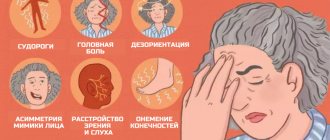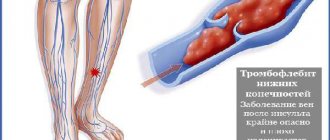There is a certain category of diseases in which the patient faces problems eating. This is due to impaired body functions. With a normal diet, you need to chew solid food thoroughly and swallow. But not all patients can do this. In such cases, doctors prescribe tube feeding - feeding the patient through a medical tube system. The patient receives a balanced diet, the menu is calculated based on the general condition of the body and the diagnosis. While taking food, the patient does not make chewing or swallowing movements. With this feeding, food enters the gastrointestinal tract in a state suitable for digestion.
Indications for tube feeding
Tube feeding is a way to provide nutrition to a patient with impaired functional state of the body. With the help of the system, the patient receives an amount of food sufficient for the normal functioning of other systems and organs. For some diagnoses, tube feeding for bedridden patients is the only method of maintaining vital functions.
Indications for the purpose of probe installation:
- rehabilitation after a stroke. One of the consequences of a stroke is impaired swallowing function (partial or complete);
- head and neck injuries with swelling of the larynx and esophagus. Ordinary food, even thoroughly chewed, does not pass down the swollen throat. Tube feeding becomes the only method of obtaining nutrients;
- being in a coma, unconscious. Patients in these conditions need to receive nutrition to maintain the vital functions of all systems and organs;
- mental disorders leading to food refusal. One example is a severe form of anorexia;
- Alzheimer's disease, multiple sclerosis, Parkinson's disease. One of the manifestations of such conditions is patient refusal to eat or impaired swallowing function;
- surgical operations on the larynx and esophagus. During the rehabilitation period after such operations, nutrition in the usual way is excluded.
In some cases, a tube system is installed in bedridden patients to administer medications taken orally. Doctors resort to this method of treatment when diagnosing gastric decompression.
What is known about coma
Coma is a state of prolonged absence of consciousness, which is characterized by a sharp weakening or lack of response to external stimuli, extinction of reflexes until they completely disappear, impaired depth and frequency of breathing, changes in vascular tone, increased or slowed pulse, and impaired temperature regulation.
Coma develops as a result of damage to the brain, causing an acute circulatory disorder in it, the consequence of which is deep inhibition in the cortex with its spread to the subcortical parts of the central nervous system.
The causes of coma are varied:
– head injury that leads to brain hemorrhage or swelling; – a stroke, in which the brain stem is left without blood supply, or a cerebral hemorrhage occurs in combination with edema; – a sharp increase in blood sugar levels (hyperglycemia) or a sharp decrease (hypoglycemia) in patients with diabetes; – hypoxia, that is, oxygen starvation caused by drowning, suffocation or cardiac arrest; – central nervous system infection such as meningitis or encephalitis; – poisoning by decay products in the body that are not excreted due to failure of excretory systems or organs, for example, ammonia during liver disease, carbon dioxide during a severe attack of asthma, urea during kidney failure; – epileptic seizures that recur over a short period of time.
There is also such a thing as a medically induced coma. It is induced by doctors in order to protect the body from disorders that negatively affect the activity of the cerebral cortex, such as hemorrhages with compression of the brain and its swelling. Artificial coma is also used instead of anesthesia when a series of complex emergency operations is necessary, during neurosurgical operations, as well as to bring the body out of epileptic status if other methods have proven ineffective.
Coma can develop suddenly or gradually, over a period of several minutes to several hours or even days. There are several classifications of types of coma, both according to its origin and degree of depth. In Russian sources, a gradation of depth from precoma to 4th degree coma is most often found.
In a state of precoma, the patient is either severely inhibited or, conversely, demonstrates psychomotor agitation; with preserved reflexes, coordination of movements is impaired, consciousness is confused.
In a state of 1st degree coma, there is sleep or stupor, marked inhibition of reactions to external stimuli, including pain, but the patient can perform simple movements, swallow water and liquid food, although contact with him is significantly difficult.
Coma of the 2nd degree is a deep sleep, lack of contact, rare spontaneous chaotic movements, pathological forms of breathing, the change of sharp tension in the muscles of the limbs with their relaxation, spastic contractions and fibrillation of individual muscles, weakened reaction of the pupils to light.
In a 3rd degree coma, which is also called atonic, there is no consciousness, no reaction to pain, reflexes are depressed or lost, there is no reaction of the pupils to light, convulsions are possible, breathing is arrhythmic, blood pressure and body temperature are reduced.
Coma 4th degree (extraordinary) is a state of complete absence of reflexes, muscle atony, a sharp decrease in pressure and temperature. The medulla oblongata stops functioning, so spontaneous breathing stops. The patient's condition is maintained using an artificial lung ventilation device (ALV) and parenteral (injection) nutrition. Often, an extreme coma ends in death, but if it is possible to bring the patient out of this state within half an hour and positive dynamics subsequently develop, then in this case, complete or partial restoration of brain functions is possible.
During coma, the central nervous system ceases to perform its regulatory function, therefore, the clear interaction of organs and systems is disrupted, the ability to self-regulate and maintain the constancy of the internal environment of the body is reduced.
Features of tube feeding
Prescribing tube feeding requires compliance with certain rules:
- compliance with temperature conditions. Food introduced through the tube should be warm (38-39 degrees). Hot foods can cause burns to the larynx and esophagus. Cold food is difficult to digest, which will lead to a worsening of the condition;
- compliance with food consistency requirements. It must be liquid;
- compliance with the principle of gradualism. When prescribing feeding through a tube, the first meals (2-3 times) should not exceed 100 mg in volume;
- If food is prepared at home, each dish must be prepared separately.
The menu for feeding through a tube depends on the specific diagnosis. The feeding regimen and meals suitable for the patient are prescribed by the attending physician. Most often it is recommended for tube feeding of bedridden patients:
- broths based on boiled fish, meat, poultry;
- kefir;
- liquid milk porridge from semolina;
- boiled fish, meat, poultry, pureed through a fine sieve, with the addition of broth in which the products were cooked.
In addition to regular products, the doctor may prescribe vitamin mixtures and other formulations produced in industrial conditions and intended for feeding through a tube.
How does tube feeding work?
The daily tube feeding regimen includes 3 to 5 meals. A sterile syringe is used for each feeding. Reuse of the syringe is not allowed.
Tube feeding is done as follows:
- the bedridden patient is raised to a semi-sitting position;
- the end of the probe with the funnel, located outside, is lowered below the neck, clamped with the included clamp;
- A syringe with a nutrient mixture is attached to the funnel. The funnel with the syringe rises 50 centimeters above the level of the stomach. The clamp is removed;
- The mixture is slowly squeezed out of the syringe into the funnel. The rate of food administration is no more than 150 mg per 5 minutes;
- After introducing food, another syringe filled with water is attached to the probe. The amount of water is from 30 to 50 ml. Water flushes the system, freeing the tube from food debris;
- A clamp is attached to the probe, the end of the probe is lowered down. A plug is installed on it.
One probe system can be used for up to 3 weeks. After this, it is removed, and doctors install a new system.
Life after a coma
“I didn’t understand where I was and why I wasn’t waking up”
Oksana, 29 years old, Khabarovsk:
I was 16. We were celebrating the New Year, and I suddenly thought: “Soon I will disappear!” I told my friend about this and they laughed. For the next month I lived with a feeling of emptiness, like a person without a future, and on February 6 I was hit by a truck.
Beyond that is an endless black veil. I didn’t understand where I was and why I wasn’t waking up, and if I died, why was I still thinking? She lay in a coma for two and a half weeks. Then she gradually began to come to her senses. After coming out of a coma, you remain in a semi-conscious state for some time. Sometimes I had visions: a ward, I was trying to eat pumpkin porridge, next to me was a man in a green robe and glasses, a father and mother.
At the beginning of March, I opened my eyes and realized that I was in the hospital. On the nightstand next to the bed there was a rose and a card from relatives for March 8th - it’s so strange, it was just February. Mom told me that a month ago I was hit by a car, but I didn’t believe her and didn’t believe that this was reality for about another year.
I forgot half my life, I learned to speak and walk again, I couldn’t hold a pen in my hands. The memory returned within a year, but full recovery took ten years. My friends turned their backs on me: when they were 15–18 years old, they didn’t want to sit by my bed. It was very offensive; there was some kind of aggression towards the world. I didn’t understand how to live on. At the same time, I managed to graduate from school on time without missing a year - thanks to the teachers! Admitted to the University.
Three years after the accident, I began to experience severe dizziness in the morning and nausea. I got scared and went to neurosurgery for examination. They didn't find anything on me. But in the department I saw people who were much worse off than me. And I realized that I have no right to complain about life, because I walk with my feet, I think with my head. Now I'm fine. I am working, and the only reminders of the accident are slight weakness in my right arm and a speech impediment due to the tracheotomy.
“After seven months I opened my eyes. My first thought: “Did I drink yesterday?”
Vitaly, 27 years old, Tashkent:
Three years ago I met a girl. We talked on the phone all day, and in the evening we decided to meet as a group. I drank a bottle or two of beer - so my lips were wet and I was completely sober. Then I got ready to go home. It's not far, I thought, maybe I should leave the car and catch a taxi? Before this, I dreamed for three nights in a row that I died in an accident. I woke up in a cold sweat and was glad to be alive. That evening I finally got behind the wheel, and with me were two more girls.
The accident was terrible: a head-on blow. The girl who was sitting in front flew through the glass onto the road. She survived, but remained disabled: her legs were broken. She is the only one who did not lose consciousness, saw everything and remembers. And I fell into a coma for seven and a half months. The doctors did not believe that I would survive.
While I was in a coma, I dreamed a lot of things. We had to sleep on the ground with some people until the morning, and then go somewhere.
After four months in the hospital, my parents took me home. They didn’t eat it themselves - it was all for me. My diabetes complicated the situation: in the hospital I lost up to 40 kilograms, skin and bones. At home they began to fatten me up. Thanks to my beloved brother: he quit school, partying, read about coma, gave instructions to his parents, everything was under his strict control. When I opened my eyes seven and a half months later, I didn’t understand anything: I was lying naked, moving with difficulty. I thought: “I drank yesterday, or what?”
I didn’t recognize my mother for two weeks. I regretted that I survived and wanted to go back: it was good in a coma
At first I regretted that I survived and wanted to go back. It was good in a coma, but here there were only problems. They told me that I had been killed in an accident, they reproached me: “Why did you drink? This is what your drinking has led to!” It bothered me, I even thought about suicide. There were problems with memory. I didn’t recognize my mother for two weeks. Memory slowly returned only after two years. I started my life from scratch, developed every muscle. There were problems with hearing: there was war in my ears—shootouts, explosions. You can go crazy. I saw it poorly: the image was multiplying. For example, I knew that we had one chandelier in the hall, but I saw a billion of them. A year later it became a little better: I look at a person a meter away from me, I close one eye and see one, and if both eyes are open, the image doubles. If a person moves further, then again there is a billion. I couldn’t hold my head up for more than five minutes—my neck was getting tired. I learned to walk again. I never gave myself any favors.
All this changed my life: now I’m not interested in partying, I want a family and children. I have become wiser and more well-read. For a year and a half I slept two to four hours a day, read everything: there was no hearing, no talking, no watching TV - only the phone saved me. I learned what a coma is and what the consequences are. I never lost heart. I knew that I would get up and prove to everyone and myself that I could handle it. I've always been very active. Before the accident, everyone needed me, and then bam! - and became unnecessary. Someone “buried” me, someone thought that I would remain crippled for the rest of my life, but this only gave me strength: I wanted to get up and prove that I was alive. Three years have passed since the accident. I can’t walk well, I can’t see well, I can’t hear well, I don’t understand all the words. But I constantly work on myself, I still do exercises. Where to go?
“After the coma, I decided to start my life over and divorced my wife.”
Sergey, 33 years old, Magnitogorsk:
At the age of 23, after an unsuccessful operation on the pancreas, I developed blood poisoning. The doctors put me into an induced coma and kept me on life support. I stayed like that for a month. I dreamed about all sorts of things, and the last time before waking up I was rolling some grandmother in a wheelchair along a dark and damp corridor. People were walking nearby. Suddenly my grandmother turned around and said that it was too early for me to be with them, she waved her hand - and I woke up. Then I spent another month in intensive care. After I was transferred to the general ward, I learned to walk for three days.
I was discharged from the hospital with pancreatic necrosis. They gave me the third disability group. I spent six months on sick leave, then went back to work: by profession I am an electrician of metallurgical equipment. Before the hospital, I worked in a hot shop, but then I transferred to another one. The disability was soon lifted.
After the coma, I rethought my life and realized that I was living with the wrong person. My wife visited me in the hospital, but I suddenly developed a kind of disgust for her. I can't explain why. We have one life, so I left the hospital and divorced my wife of my own free will. Now he is married to someone else and is happy with her.
“Half of my face is made of iron”
Pavel, 33 years old, St. Petersburg:
Since my youth, I have been involved in alpine skiing, a little powerlifting, and trained children. Then I gave up sports for several years, worked in sales, did whatever the hell. He lived one day at a time, trying to find himself.
In 2011, I fell from an observation deck in Tallinn from a height of the fourth floor. After that, he lay in a coma for eight days on artificial life support.
While I was in a coma, I dreamed of some guys who said that on earth I was doing the wrong thing. They said: look for a new body and start all over again. But I said I want to go back to the old ways. In your life, to your family and friends. “Well, try it,” they said. And I returned.
The first time after waking up, I did not understand what was wrong with me, and the world around me seemed unreal. Then I began to become aware of myself and my body. Absolutely indescribable sensations when you realize that you are alive! The doctors asked what I would do now, and I answered: “Train children.”
The main blow during the fall fell on the left side of the head, I went through several operations to restore the skull and facial bones: half of the face is made of iron: metal plates are sewn into the skull. My face was literally assembled from a photograph. Now I almost look like my old self.
The left side of the body was paralyzed. The rehabilitation was not easy and very painful, but if I sat and was sad, nothing good would have come of it. My family and friends supported me a lot. And my health is good. I did exercise therapy, performed exercises to restore memory and vision, completely isolated myself from everything harmful and followed a daily routine. And a year later he returned to work, organized his own sports club in St. Petersburg: in the summer I teach children and adults to roller skate, in the winter - skiing.
“I broke down and shook my son: “Say something!” And he looked and was silent"
Alena, 37 years old, Naberezhnye Chelny:
In September 2011, my son and I had an accident. I was driving, lost control, drove into oncoming traffic. The son hit his head on the counter between the seats and suffered an open head injury. My arms and legs were broken. I sat stunned, in the first minutes I was sure that everything was fine with my son. We were taken to Aznakaevo, a small town where there is no neurosurgeon. As luck would have it, it was a day off. The doctors said that my child had injuries incompatible with life. He lay there for a day with a broken head. I prayed like crazy. Then doctors from the republican hospital arrived and performed a craniotomy. Four days later he was taken to Kazan.
My son lay in a coma for about a month. Then he began to slowly wake up and entered the phase of a waking coma: that is, he slept and woke up, but looked at one point and did not react in any way to the outside world - and so on for three months.
We were discharged home. The doctors did not give any prognosis; they said that the child could remain in this condition for life. My husband and I read books about brain damage, gave our son massages every day, did exercise therapy with him, and in general, didn’t leave him alone. At first he lay in diapers, couldn’t hold his head up, and didn’t speak for another year and a half. Sometimes I would break down and shake him in hysterics: “Say something!” And he looks at me and is silent.
I lived in a kind of half-asleep, I didn’t want to wake up so as not to see all this. I had a healthy, handsome son, an excellent student, and went in for sports. And after the accident it was scary to look at him. Once I almost came close to committing suicide. Then I went to a psychiatrist for treatment, and faith in the best returned. We raised money for rehabilitation abroad, a lot of friends helped, and my son began to recover. But several years ago he developed severe epilepsy: seizures several times a day. We've tried a lot of things. In the end, the doctor picked up pills that helped. Seizures now occur once a week, but epilepsy has delayed the progress of rehabilitation.
Now my son is 15 years old. After paralysis of the right side of his body, he walks crookedly. The hand and fingers of the right hand do not work. He speaks and understands at the everyday level: “yes”, “no”, “I want to go to the toilet”, “I want a chocolate bar”. The speech is very scanty, but doctors call it a miracle. Now he is home-schooled, a teacher from a special school teaches him. Previously, my son was an excellent student, but now he solves examples at level 1+2. He can copy letters and words from a book, but if you say “write a word,” he won’t be able to. My son will never be the same, but I am still grateful to God and the doctors that he is alive.
Benefits of rehabilitation
Feeding through a tube is a complex procedure, during which you must strictly follow the rules, monitor sterility and hygiene. It is very difficult for an ordinary person to do everything correctly. Our rehabilitation center employs experienced professionals who are well acquainted with the features of tube feeding. Health workers will monitor the feeding schedule and follow all doctor’s recommendations regarding the menu and amount of food.
Caring for a bedridden patient is a task with which relatives of patients often turn to us. Our employees pay special attention to compliance with all medical recommendations. In addition to nutrition, our responsibilities include:
- 24-hour care;
- prevention, treatment of bedsores;
- physiotherapy;
- massage.
The center has its own psychologists and speech therapists. These doctors help patients of all ages undergoing rehabilitation.










